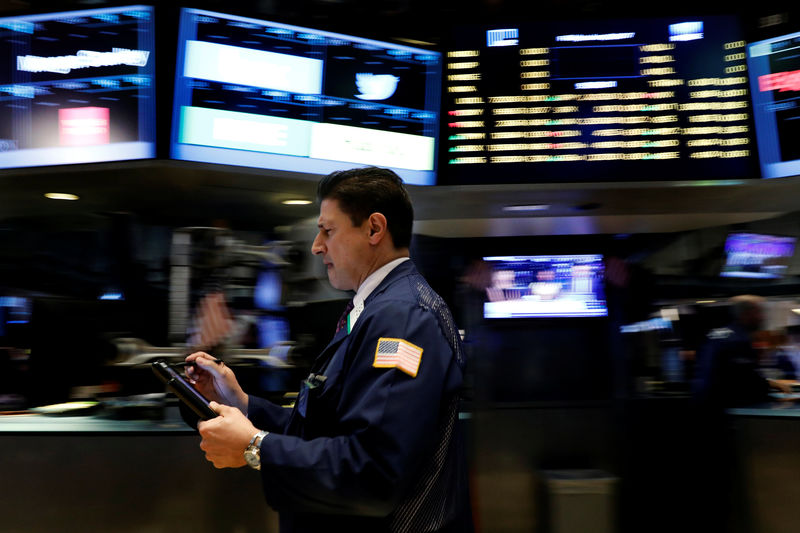By Caroline Valetkevitch
NEW YORK (Reuters) - A sell-off in Apple (O:AAPL) and other tech heavyweights dragged stocks down for a second session on Monday, while the dollar slipped ahead of the U.S. Federal Reserve meeting this week.
The technology sector rout weighed on all three major U.S. stock indexes and raised concerns about lofty U.S. share levels.
The Nasdaq ended down 0.5 percent after falling 1.8 percent on Friday. Apple lost 2.5 percent, though other tech giants Alphabet (O:GOOGL), Facebook (O:FB) and Microsoft (O:MSFT) also were down.
At the same time, energy shares added to Friday's gains, suggesting that investors were seeking value. The S&P energy index (SPNY), which has had the biggest declines among sectors so far this year, ended up 0.7 percent.
"You're seeing people not want to come out of the market. They're selling what's been a winner, rotating into what's been a loser because they want to stay in the market. That's not necessarily a bullish omen because when markets are at tops, people want to stay fully invested," said Michael O'Rourke, chief market strategist at JonesTrading in Greenwich, Connecticut.
The S&P technology index (SPLRCT) ended down 0.8 percent on Monday, but well off its worst levels of the session and it remains up 17.6 percent for the year to date. The sector had ballooned to its most expensive since early 2008 in terms of price-to-earnings expectations.
The Apple-led worries had taken a heavy toll on Asian rivals, including Samsung (KS:005930) overnight, and then hit Europe's big chipmakers STMicro (PA:STM) and Dialog (DE:DLGS).
An ebbing of the reflation trade that was based on U.S. President Donald Trump's tax and spending promises, and a run of negative U.S. economic surprises, have prompted some investors to review the mix of their portfolios.
The Dow Jones Industrial Average (DJI) fell 36.3 points, or 0.17 percent, to 21,235.67, the S&P 500 (SPX) lost 2.38 points, or 0.10 percent, to 2,429.39 and the Nasdaq Composite (IXIC) dropped 32.45 points, or 0.52 percent, to 6,175.47.
The pan-European STOXX 600 (STOXX) was down 1 percent, while MSCI's gauge of stocks across the globe (MIWD00000PUS) was down 0.3 percent.
In the foreign exchange market, the dollar index (DXY) slipped 0.1 percent, with losses limited by investor expectations the Fed will increase U.S. interest rates this week while other central banks, including the Bank of England and Bank of Japan, are likely to remain on hold.
The euro
The first round French parliamentary election results look set to give President Emmanuel Macron a huge majority to push through pro-business reforms, which also helped.
Oil gained on signs of inventory declines in the United States. News that Saudi Arabia will limit volumes of crude to some Asian buyers in July and deepen cuts to the United States also boosted prices.
Brent crude futures (LCOc1) ended the session up 14 cents, or 0.3 percent at $48.29 a barrel, while U.S. crude futures (CLc1) gained 25 cents, or 0.6 percent, to settle at $46.08.
U.S. Treasury yields rose after tepid demand at a 10-year Treasury auction offset strong demand at a three-year auction.
Benchmark 10-year Treasuries (US10YT=RR) were last down 3/32 in price to yield 2.211 percent, from a yield of 2.199 percent late on Friday.
